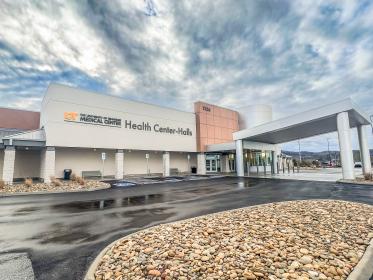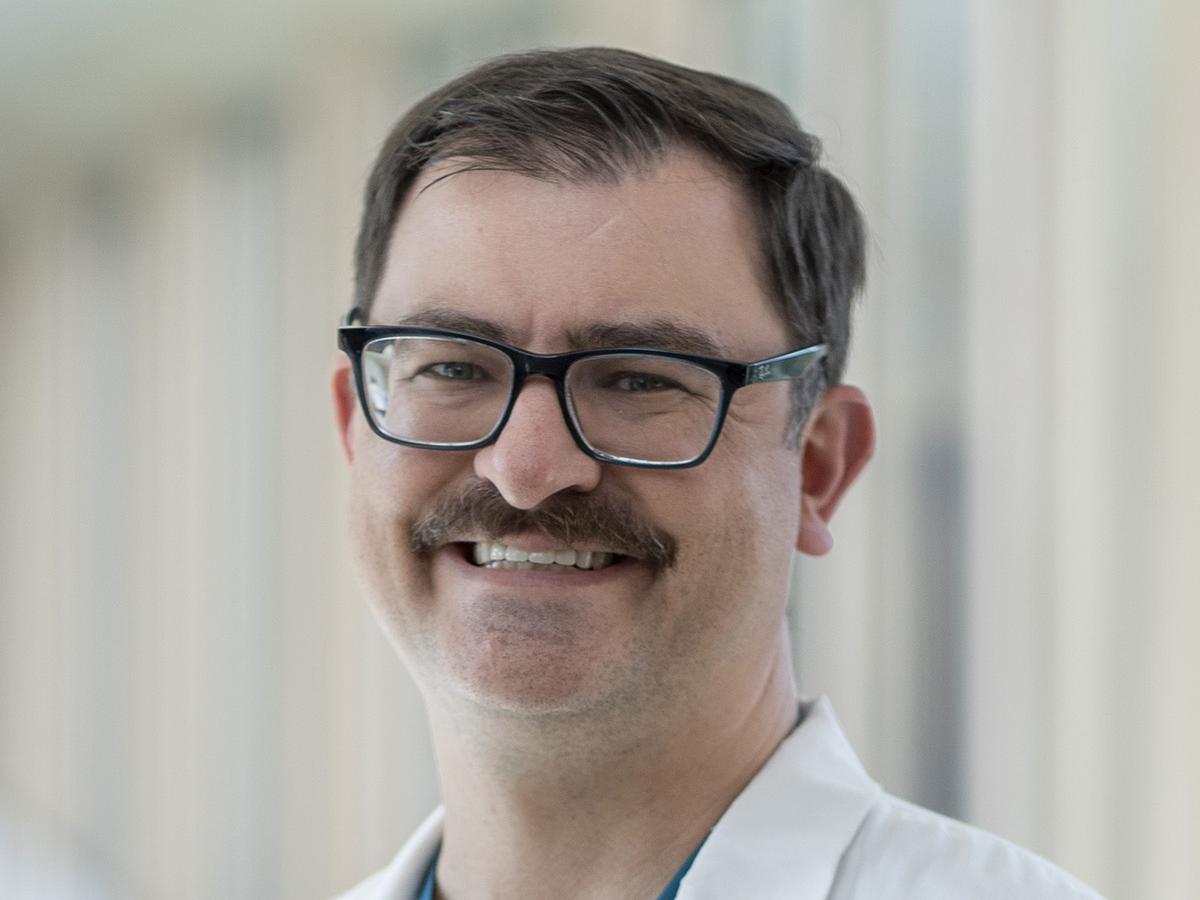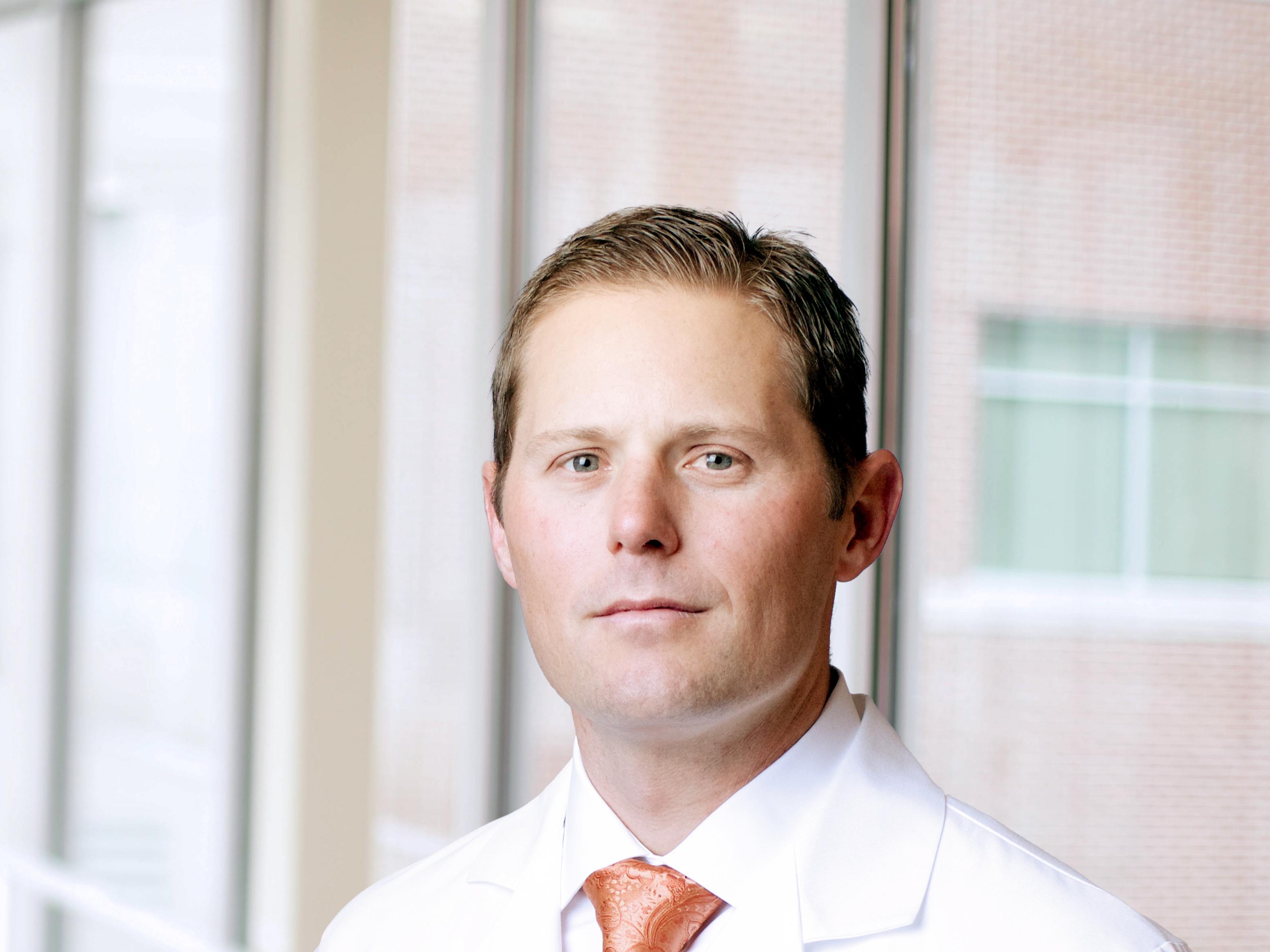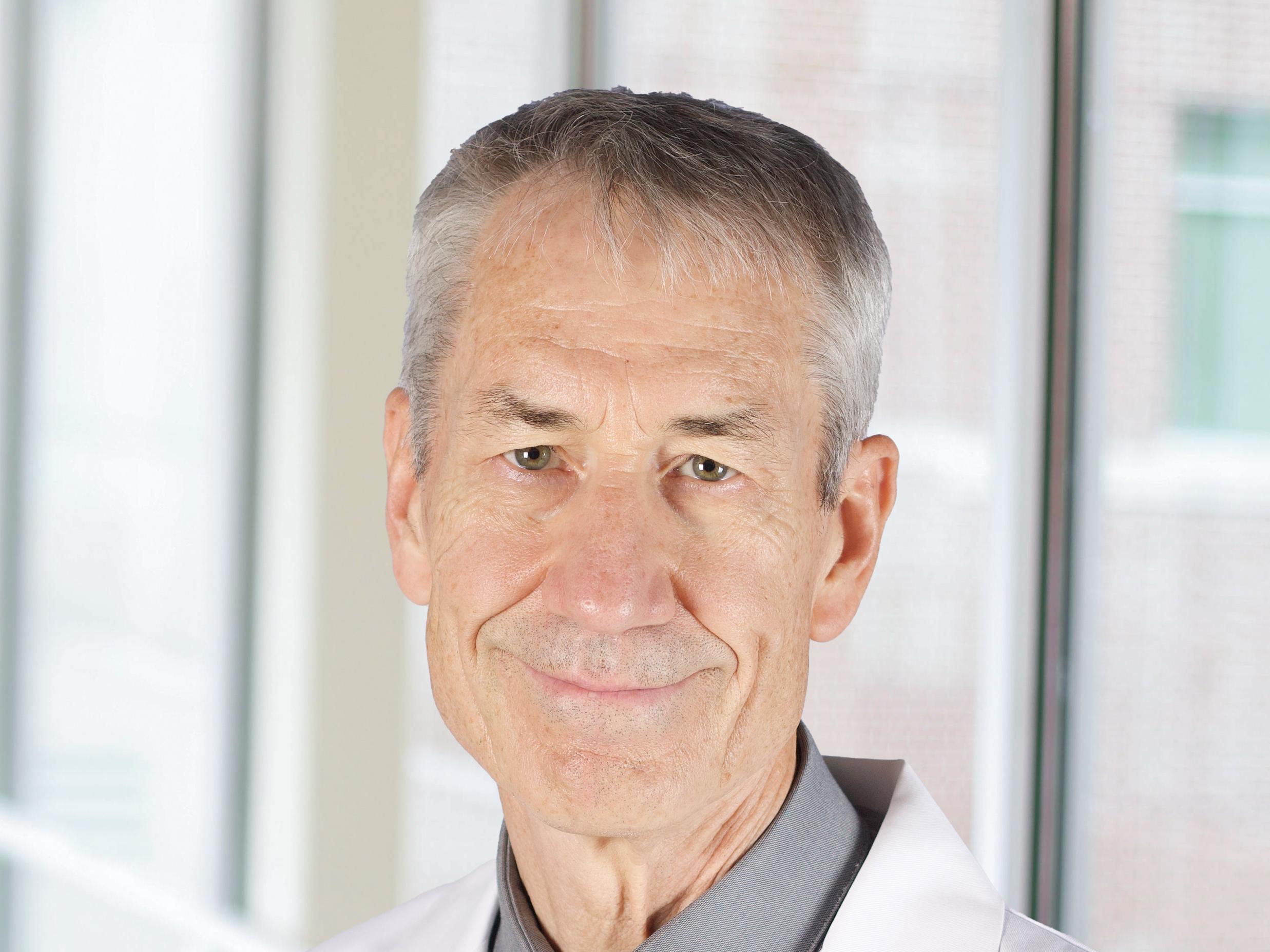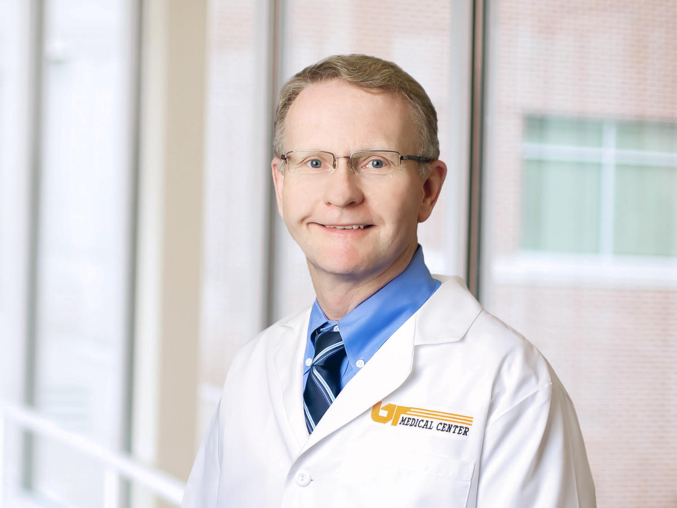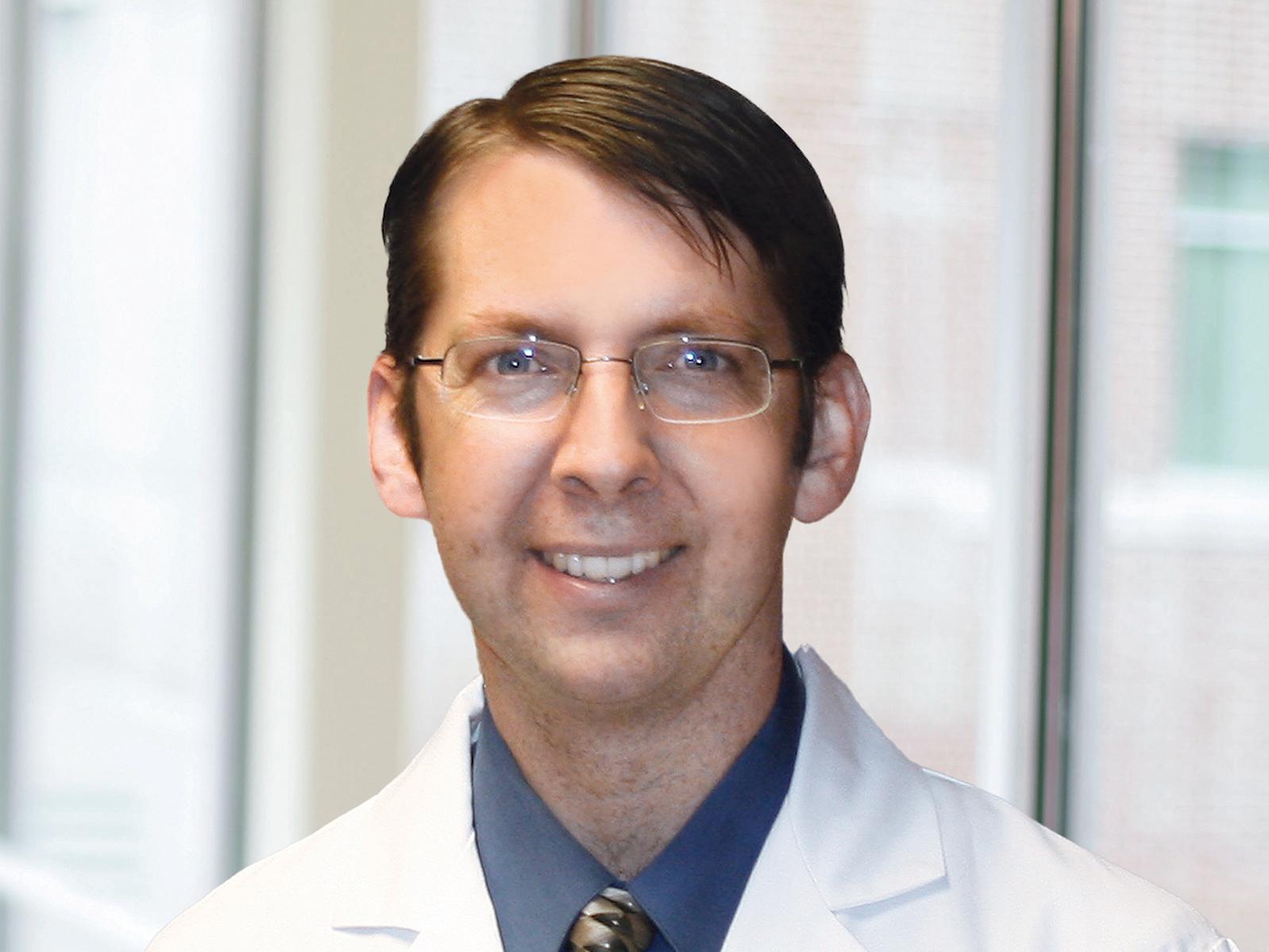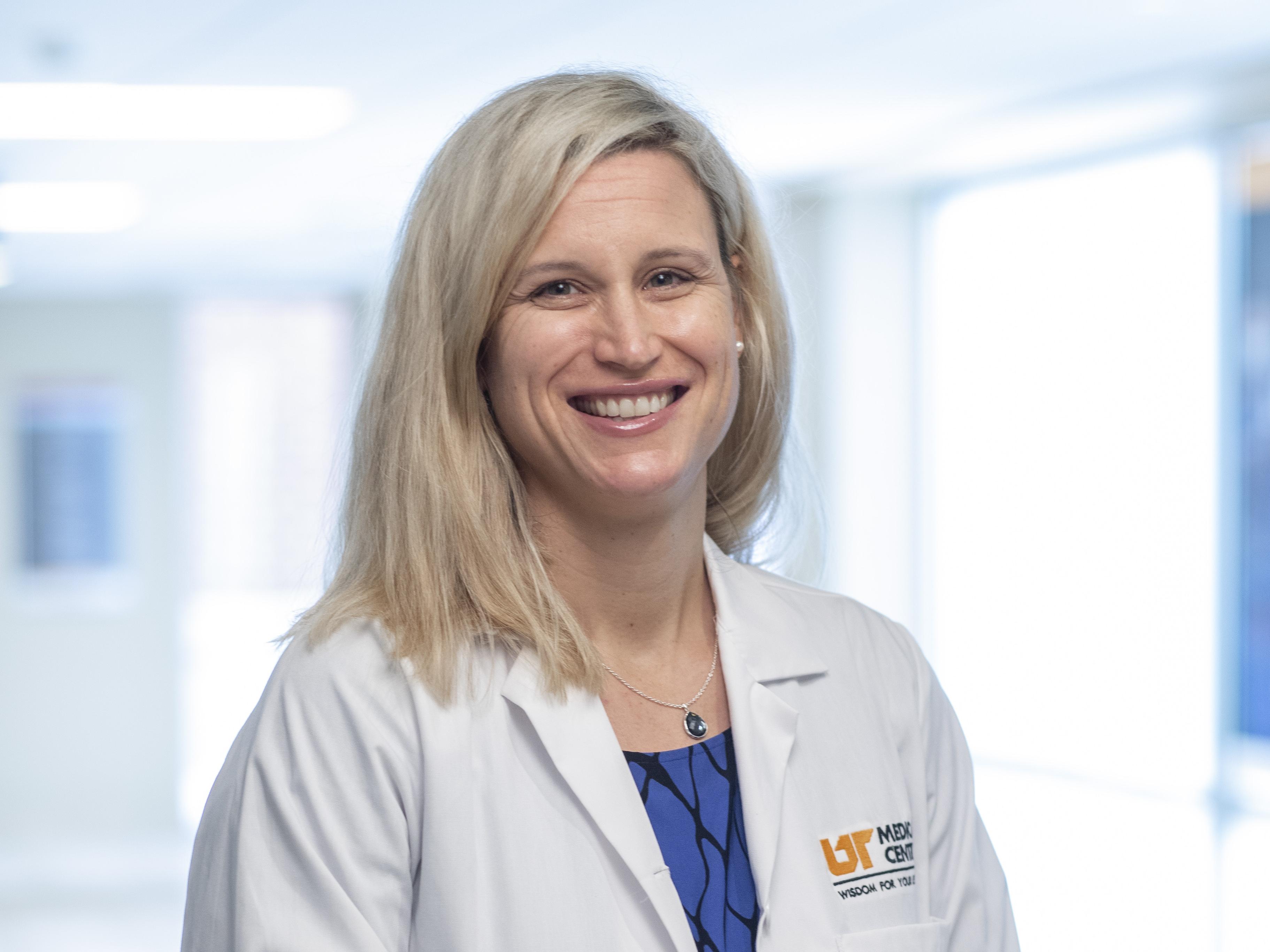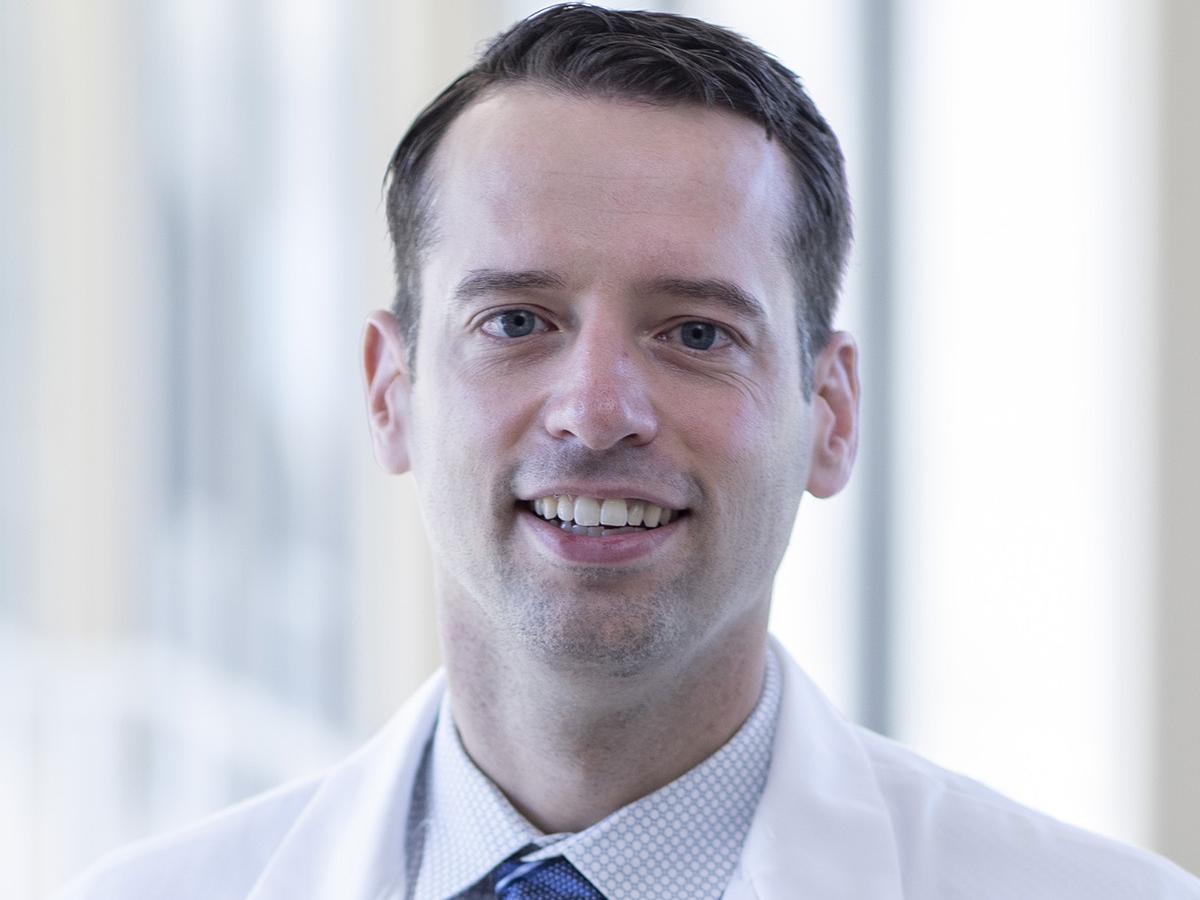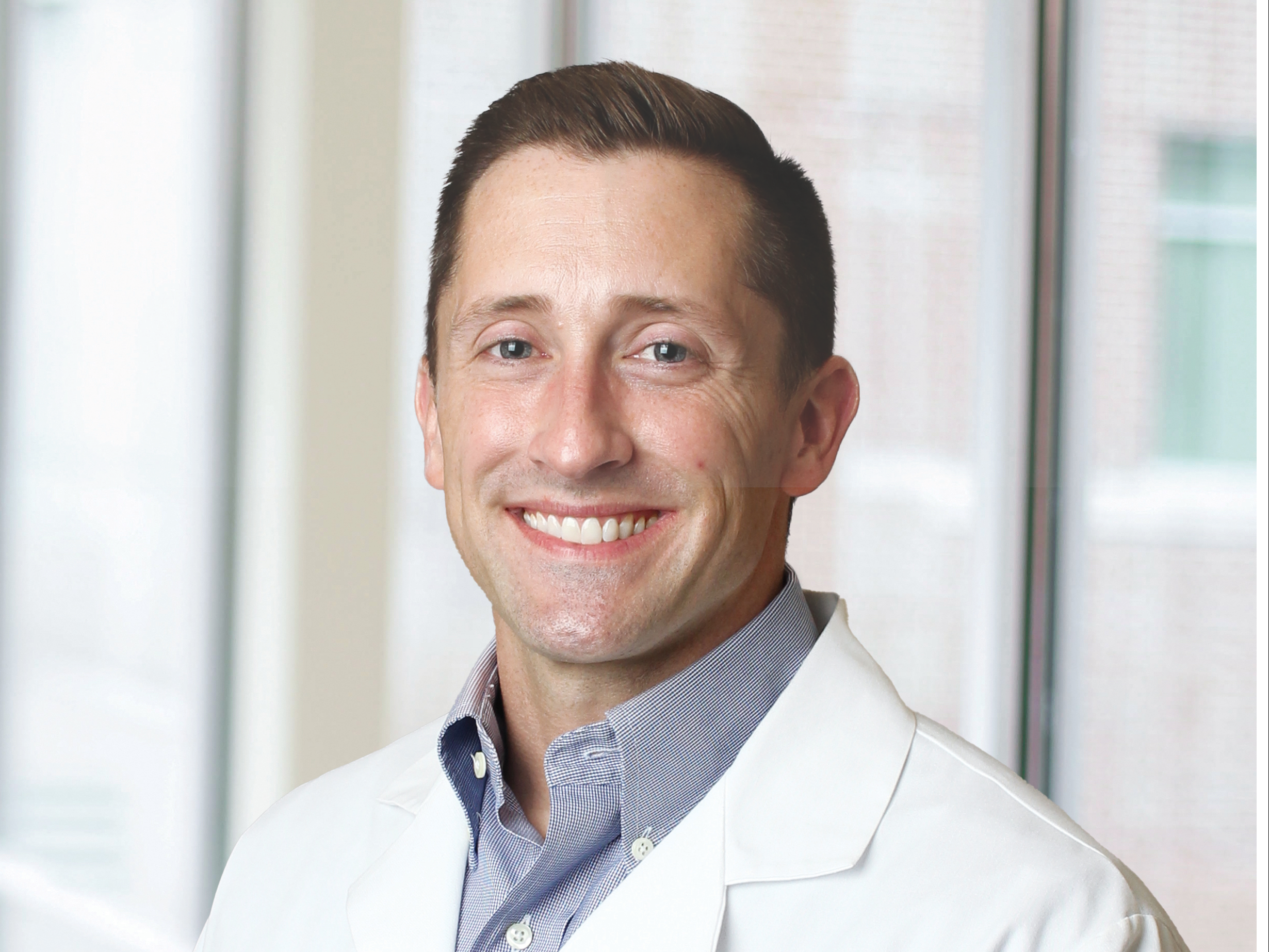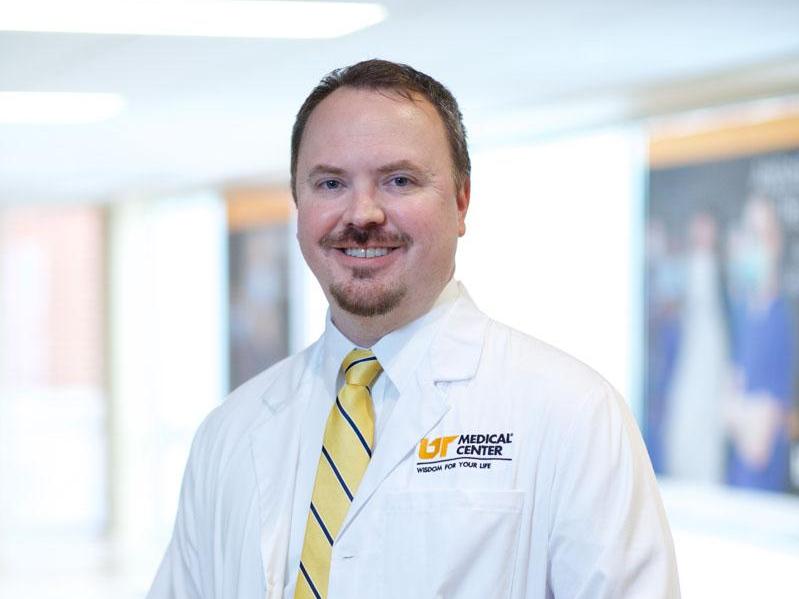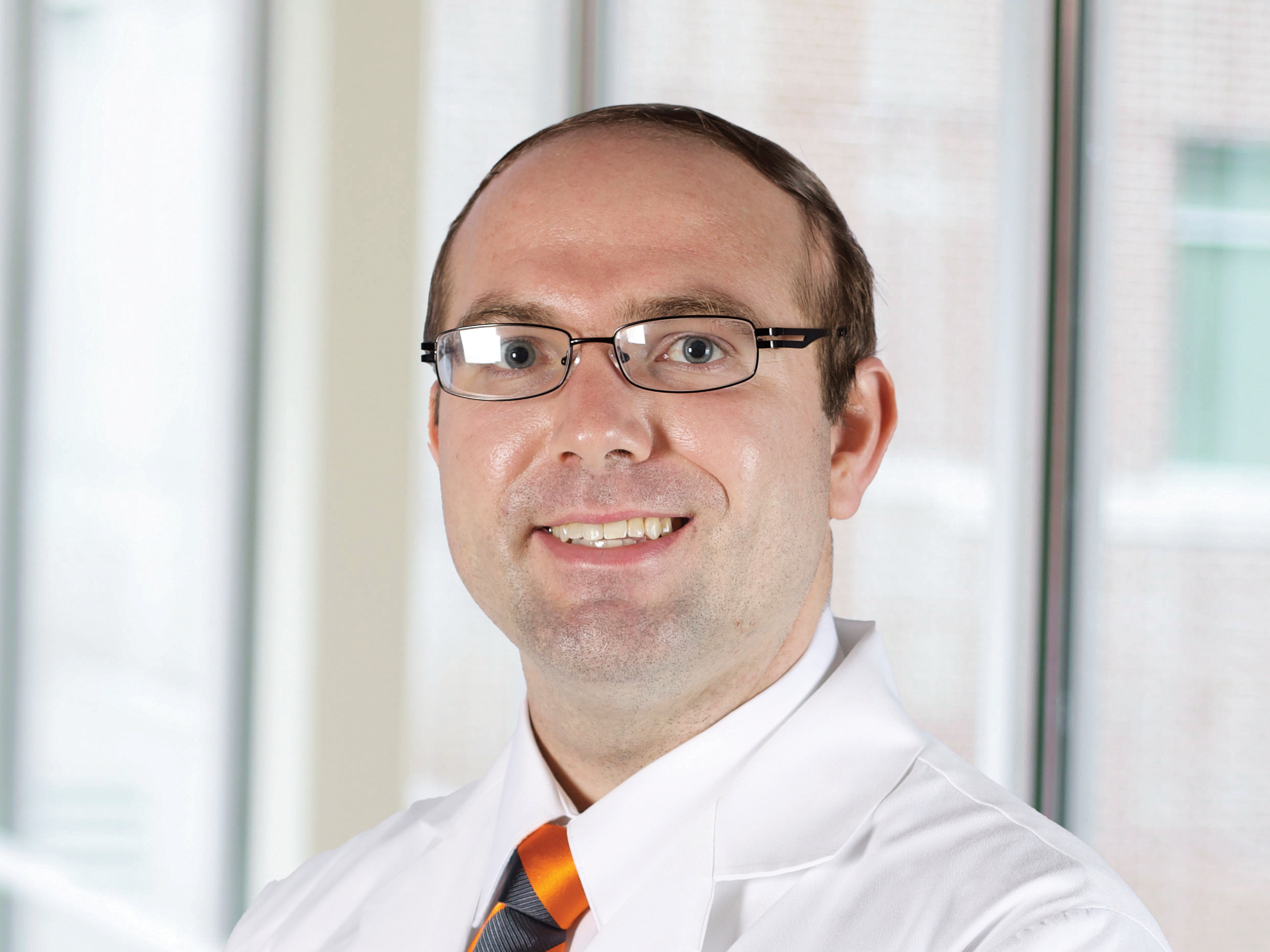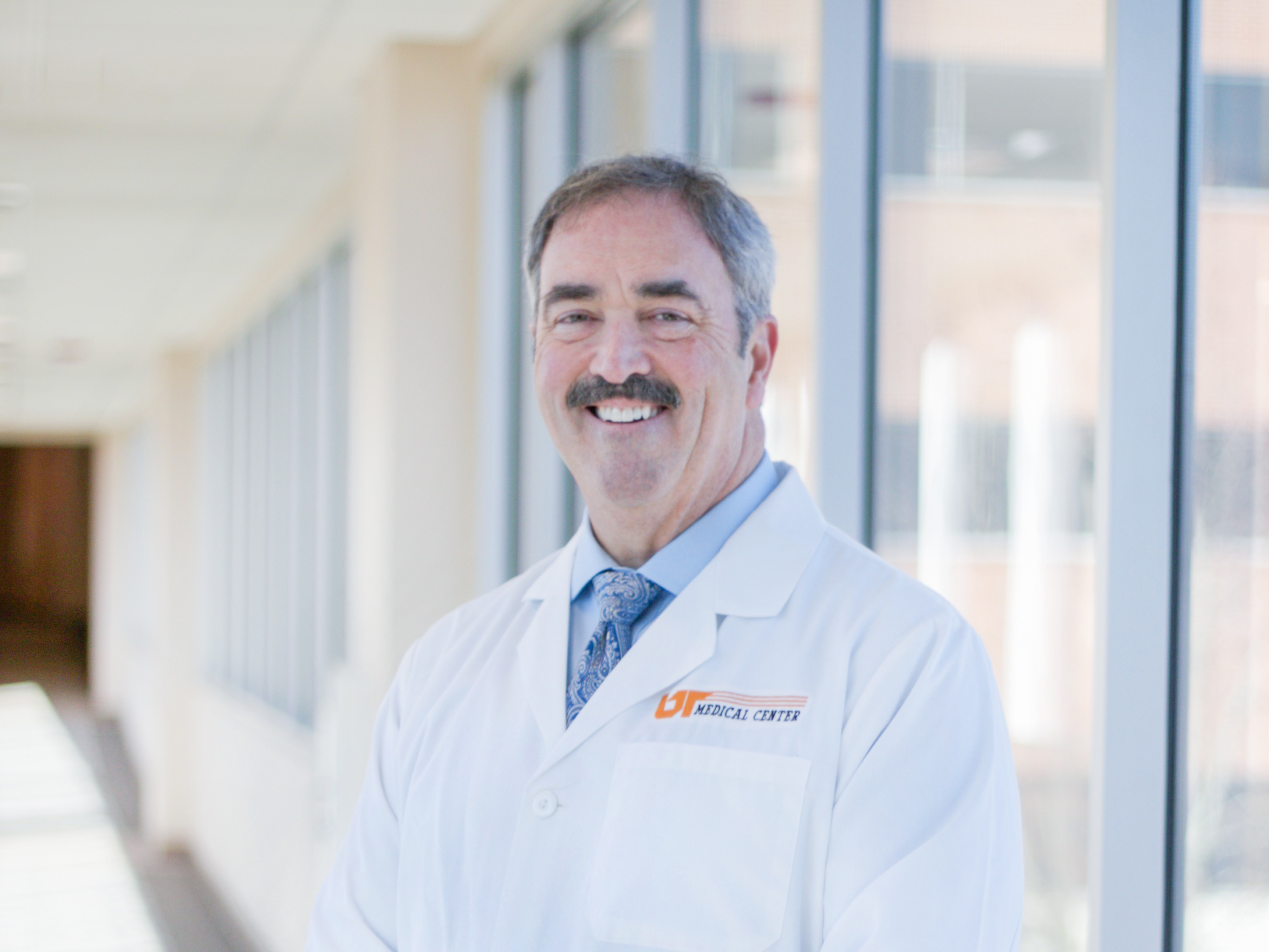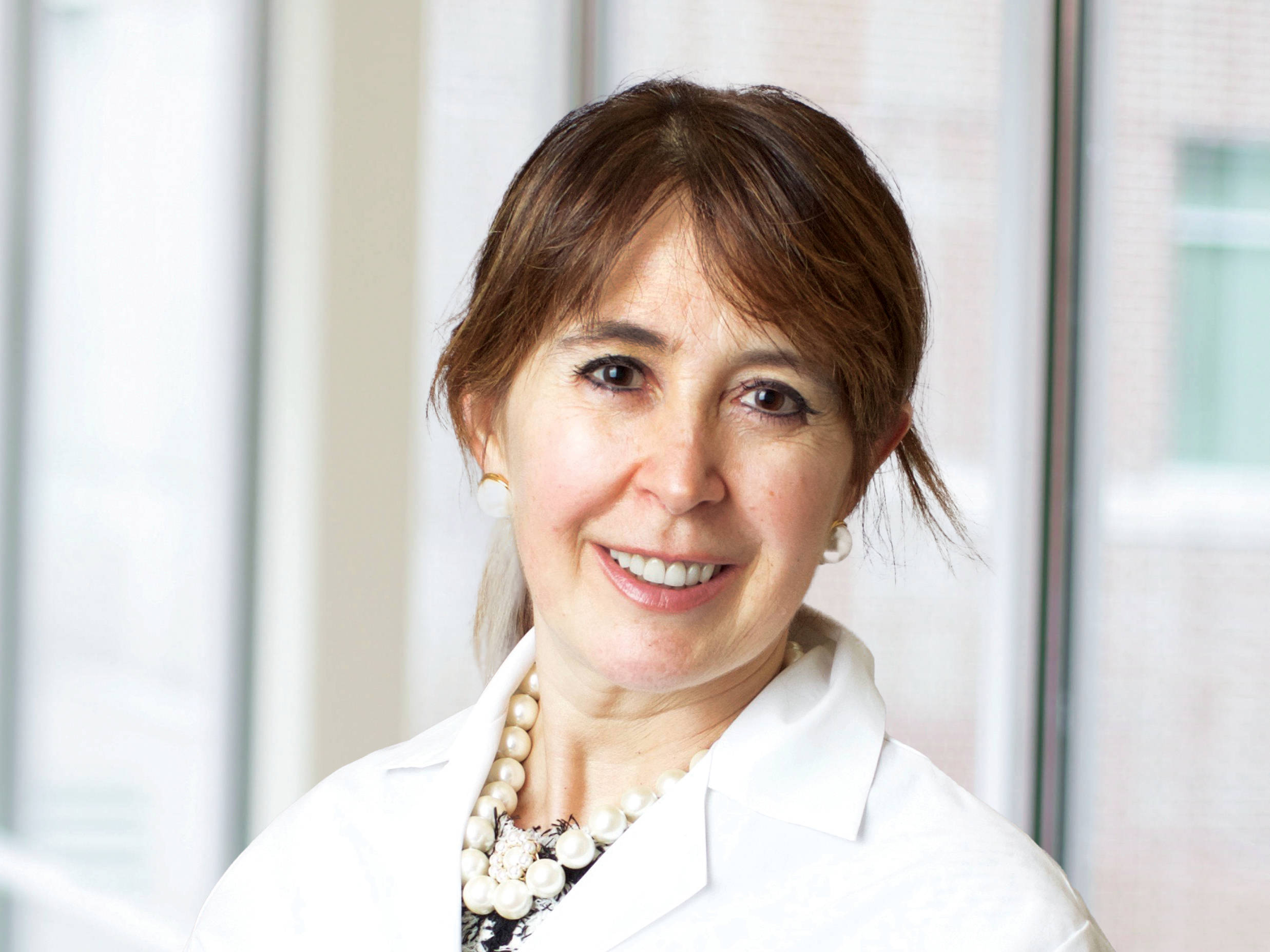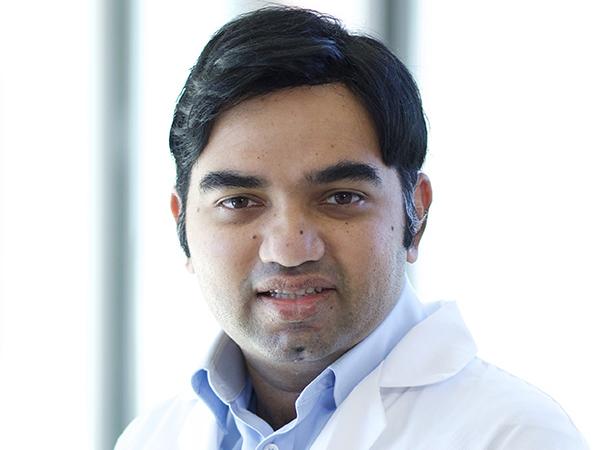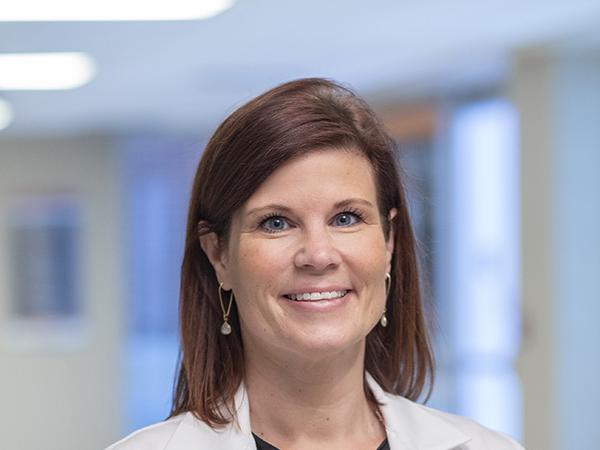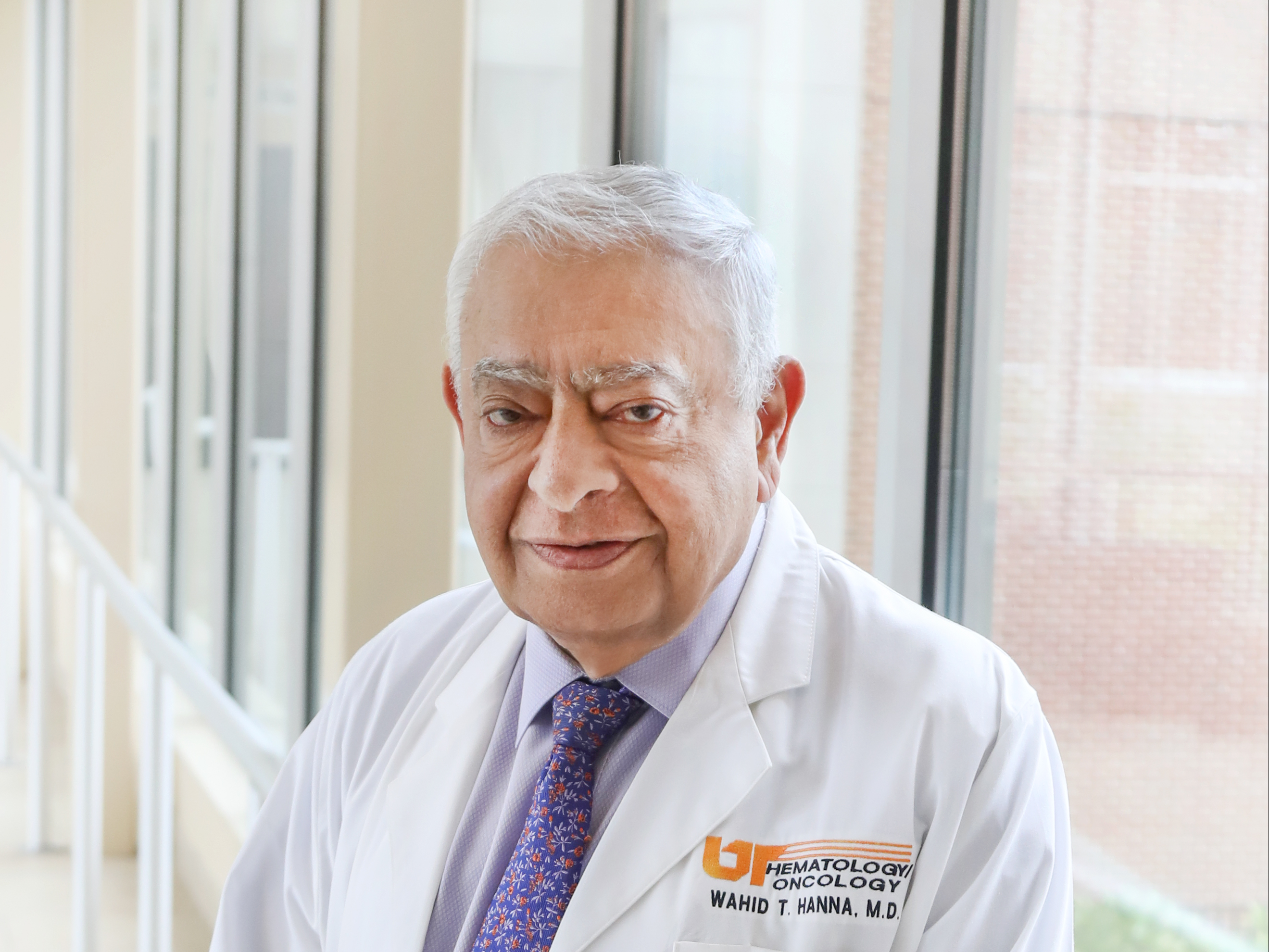Overview
The American Cancer Society’s estimates for esophageal cancer in the United States are:
- About 17,650 new esophageal cancer cases diagnosed (13,750 in men and 3,900 in women)
Esophageal cancer is more common among men than among women.
The esophagus is part of the digestive system and aids in moving food from the throat to the stomach. Esophageal cancer forms from pre-cancerous (abnormal) cellular growth within the esophagus. There are two common forms of esophageal cancer squamous cell carcinoma and adenocarcinoma.
Squamous cell carcinoma is cancer that arises from the flat cells lining the esophagus. Squamous cell carcinoma usually forms in the upper or middle part of the esophagus.
Adenocarcinoma is cancer that arises from the glandular cells that line the esophagus. Adenocarcinoma usually arises in the lower part of to the esophagus approaching the stomach.
The Gastrointestinal Tumor Service (GITS) at UT Medical Center is designed to provide easy access to a multidisciplinary team specializing in diagnosing and treating esophageal cancers.
Your Care at the Cancer Institute
The Cancer Institute at The University of Tennessee Medical Center offers the broadest spectrum of cancer specialists and services to care for our patients with esophageal cancer.
Our team provides patients with esophageal cancer access to all of their cancer care including surgical consultations, radiation therapy, genetic counseling/testing, chemotherapy infusions, and supportive/integrative health services.
The Cancer Institute offers a highly trained team of oncologists and gastroenterologist trained at some of the top institutions in the country, bringing the best care to patients in our region. Our center is designed to assist and support patients through their cancer journey so they can choose the most appropriate treatment plan based on their particular diagnosis and needs. Additionally, our physicians have offices in many locations throughout East Tennessee to better serve patients with esophageal cancer.
Gastroenterologists at the University of Tennessee Medical Center provide evaluation and perform tests to make a diagnosis and collaborate with the multiple other cancer specialists to determine the best course of treatment for each individual patient. Our team of gastroenterologists are board certified by the American Board of Internal Medicine and the subspecialty board of Gastroenterology.
Patients are reviewed at multidisciplinary conferences where gastroenterologists, surgeons, medical oncologists, surgical oncologists, radiation oncologists, radiologists, pathologists, genetic counselors, nurses and clinical trials coordinators gather to determine the best individualized treatment plan for each patient. This level of coordination ensures that patients are receiving the highest level of care, offering the best outcomes and quality of life. Our comprehensive care teams also include integrative healthcare, a registered dietitian, financial counselors, pastoral care, palliative care and a social worker.
Symptoms of Esophageal Cancer
Esophageal cancer may have the following symptoms:
- Roughness of the throat and coughing
- Heartburn or indigestion
- Chronic cough or hoarseness
- Bleeding
- Vomiting
- Weight loss
- Pain in the throat
- Difficulty with swallowing
Risk Factors
Esophageal cancer risk factors include:
- Age – usually occurs in people over the age of 55
- Gender – men are more likely than women to get esophageal cancer
- Gastric reflux – a condition where stomach acids found in the stomach for normal digestion, seep into the lower part of the esophagus
- Barrett’s esophagus – a condition where prolonged periods of acid in the esophagus can damage the cells that line the esophagus.
- Consumption of alcohol
- Obesity
- Poor nutritional habits (foods high in fat content, fried or processed foods and red meat).
Diagnosing Esophageal Cancer
There are a number of test that may be ordered to diagnose esophageal cancer:
- Barium Swallow
- Biopsy
- Bronchoscopy
- Positron emission tomography (PET) scan
- Upper endoscopy
- Endoscopic ultrasound
- Esophagogastroduodenoscopy (EGD)
- Magnetic resonance imaging (MRI)
- Computed tomography (CT)
Your Treatment Options
The decision on how to treat your esophageal cancer is one that involves your active participation with understanding of your diagnosis, treatment options, and taking into consideration your lifestyle and values. Your doctor may talk with you about several options, including:
- Surgery
- Radiation
- Chemotherapy
- Targeted therapy
- Endoscopic treatments
Clinical Trials
Cutting-edge treatment is offered to patients along with opportunities to participate in National Cancer Institute and pharmaceutical clinical trials. Clinical trials are research studies made available to patients that offer the newest treatments and test new ways to prevent, detect, diagnose and treat diseases.
For more information, visit Clinical Trials or call 865-305-9773.
Your Next Steps
The Cancer Institute’s GITS provides easy access to a multi-disciplinary team that specializes in the diagnosis, treatment and follow-up care of patients with gastrointestinal (GI) cancers, including esophageal cancer.
One phone call to 865-305-4487 can put you in touch with our team of board certified physicians led by James McLoughlin, MD,, a surgical oncologist. Our team of specialists have an interest and expertise in the evaluation, management and treatment of all GI cancers. Patient cases are reviewed at a weekly multidisciplinary tumor conference attended by surgeons, medical oncologists, radiation oncologists, gastroenterologists, radiologists, pathologists, genetic counselors and clinical nurses in order to determine the best treatment plan for the individual. This individualized treatment plan is designed to maximize outcomes and quality of life.
The GITS is designed to expedite the care of patients referred with symptoms or findings suspicious for a GI malignancy or a confirmed cancer diagnosis. The GITS nurse navigator assists with the coordination of each referral while providing information, education and support for patients and their families. In partnership with the referring physician, the GITS will work to determine and complete the specific plan of care. Patients may be referred for only special diagnostic procedures or treatments and then returned to the referring physician for completion of their care plan and follow-up.
All specialists and procedures are available in one location on the campus of The University of Tennessee Medical Center.
Our Cancer Institute team is here for you in what can be a very stressful time. Please don’t hesitate to ask questions and request help when you need it. Our new patient section will provide you additional information about the Cancer Institute and everything you need to know to prepare for your first visit.
For more information on esophageal cancer, visit our External Resources page for several trusted sites to enhance your research and understanding of your diagnoses.


